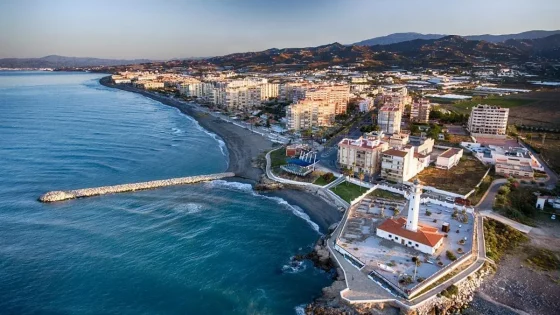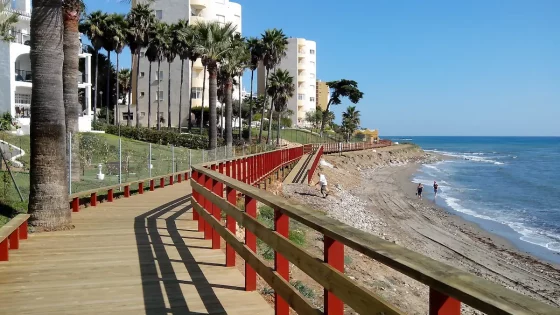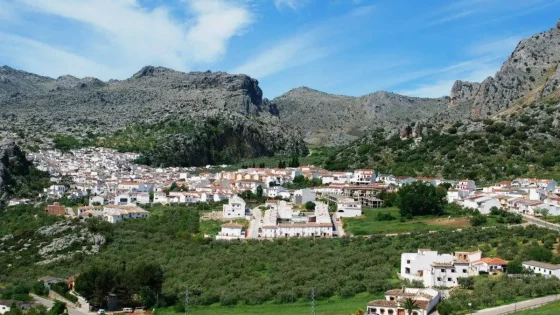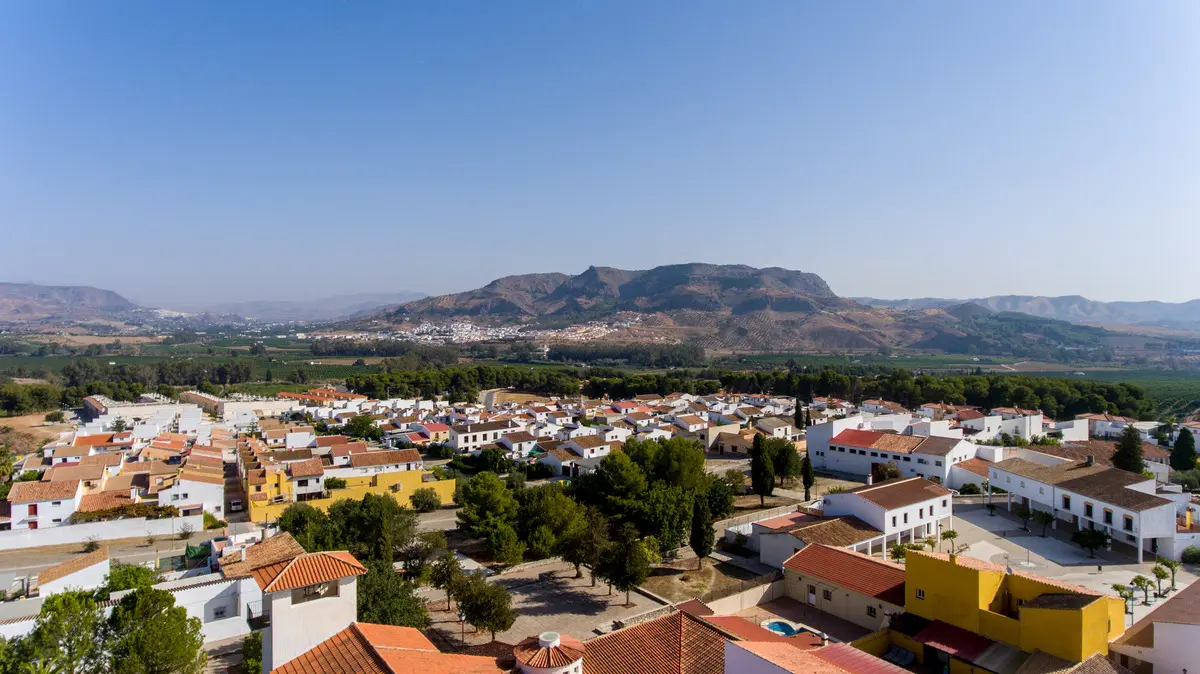
Situated on the bed of the river Guadalhorce, Pizarra is a charming village surrounded by extensive cultivated fields that feed the valley of the same river. Aromatic hiking trails, archaeological sites of various civilisations and indescribable views of the whole valley are what you will find on your visit.
Table of Contents
History of Pizarra
Thanks to the archaeological remains located in the vicinity of the village and along the banks of the river Guadalhorce, it is possible to establish that the history of Pizarra dates back to at least the Bronze Age. The remains of the necropolis of Castillejos de Luna, located in caves near the village, date from this period.
You can also visit Roman remains such as the Bañadero de la Reina cistern, as well as remains from the Mozarabic period, the main emblem of which is the acropolis of Castillejos de Quintana.
What to see and do in Pizarra
What to see in Pizarra
Despite not being one of the largest towns in the region, Pizarra has an abundance of places to visit and things to do, thanks to the civilisations that have passed through this enclave and its location.
Monuments
Places to visit include:
Prehistoric Necropolis of Castillejos de Luna: located a few kilometres from the village in the direction of Malaga, in these nearby caves remains from the Bronze Age have been found, the area having been declared an Asset of Cultural Interest.
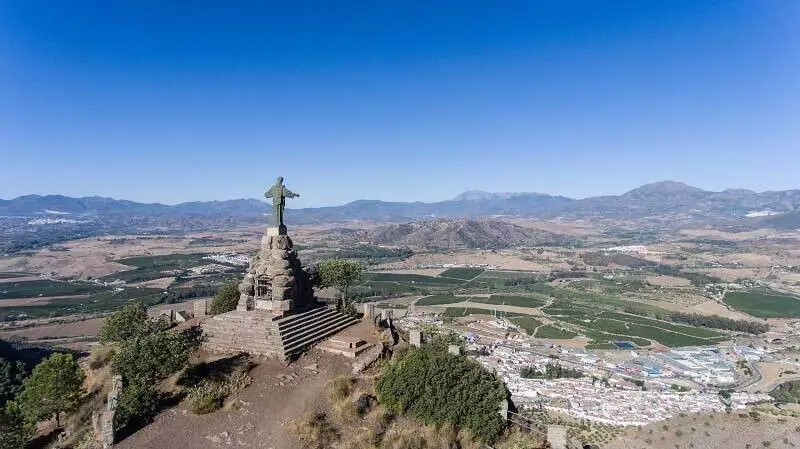
Palace of the Counts of Puerto-Hermoso: a stately building dating from the 20th century, built in the Mudejar style and which at the time was the centre of power in the area. It was the meeting place for the country’s high officials after the famous Annual Disaster in the Rif War.
If you are visiting the village in the warmer months, be careful and take adequate hydration measures. The route consists mainly of unshaded sections.
Statue of the saint: a place of pilgrimage, this statue on the nearby hill offers unforgettable views of the village and the entire Guadalhorce valley, with its olive and almond groves.
Cerro de los Castillejos de Quintana: tombs, ancient Roman baths and the remains of Mozarabic buildings are what you can see if you visit this ancient city that has been populated by various civilisations.
Nature
If you are looking for hiking activities in Pizarra, adjoining this is a nearby wooded area (you can find it on the map below), which leads to the Raja Ancha, a crevice in which a stone staircase has been carved out of the rock itself.
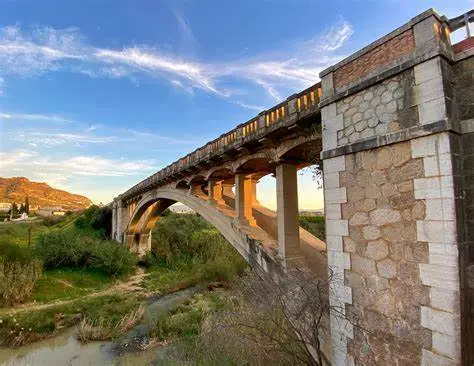
Following this path through a forest with protected fauna, you can access the Dark Cave. And if you still want to continue your exploration route, you have the option of climbing up to the stature of the saint, you only have to climb the spectacular Raja Ancha staircase to begin the ascent to the mountain.
All these paths are part of what is known as the Contrasts and Orange Blossom route, which crosses a large part of this region, famous for the aromatic vegetation that surrounds it.
What to do in Pizarra
Popular festivals
During the month of August the Festival de Cante Flamenco is held, a festival dedicated to this beautiful musical art that is so characteristic of the region. If you’re looking for a more festive atmosphere, don’t miss the dazzling bonfires of San Juan. Although this festival is usually held on the beach, it is a festival of great expectation in this town.
If you visit the area in February, you will be able to see the curious festival of San Blas. The villagers make a pilgrimage to the statue of the saint, which rises on a mountain above the town, with a typical donut for the saint to bless it.
Gastronomy
From this town it is imperative to try the “sopa aplastá“, a peculiar soup based on peppers, asparagus, tomato and homemade village bread that is added at the end so that it absorbs the juices. It is usually accompanied by orange, olives or radish.
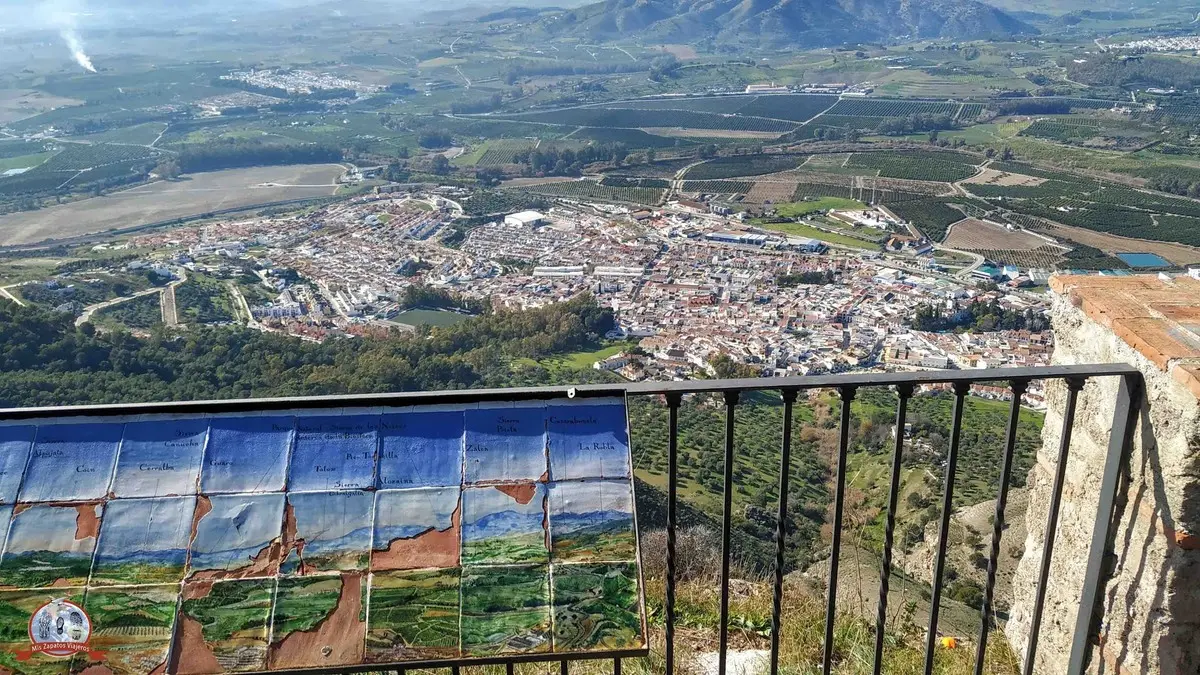
The leftovers are usually used to make ‘bolo pizarreño’, to which eggs, tuna, figs or olives are also added, depending on the family tradition. They are very similar to the typical “sopa perota” from neighbouring Álora, although there are differences in their preparation. For the perfect dessert you can try the typical sweets of the village, the “roscos de Cerralba”.
How to get to Pizarra
How to get there by public transport
If you have decided to visit this beautiful village by public transport you have 2 alternatives: bus and train. The second option is quicker, although less economical than the bus. From Malaga train station, or from any of its stops, you can take the C2 local train line in the direction of Pizarra, which offers about 8 journeys a day with a duration of about 30 minutes.
On the other hand, the bus journey takes 50 minutes, taking the M-231 line from Malaga Bus Station, with an approximate cost of 1.60 euros, slightly cheaper than the train.
How to get there by car
Access by car from the nearby Malaga airport to Pizarra is very easy if you decide to hire a car without excess. It is just over 30 minutes along the road to Ardales.
The directions are simple: follow the MA-21 until you take the MA-20 towards Sevilla – Córdoba, which you follow until you take exit 7 to take the A-357 towards Cártama. Follow this road for about 20km until you reach the village.
Map of Pizarra
Don’t forget to check this map we have prepared with all the important places to visit. Plan your visit to the Costa del Sol and don’t miss any of the treasures hidden in the mountains of the region.
Relevant information
Best time of year to visit: Spring (between March and May).
Not to miss: The climb and views from the Statue of the Saint.
Places to eat nearby: El Rincón del Mohino. Specialising in fish and seafood, this is a place where you can try cheap, quality food in good quantities.
- Telephone: 650138427
- Address: Polígono Industrial de Pizarra, C. Porvenir, Nave 2, 29560 Pizarra, Málaga
- Opening hours: Tuesday to Sunday (13-16h / 20.30-24h), Monday closed.
For more information visit the website of the Town Hall of Pizarra: https://www.pizarra.es/

